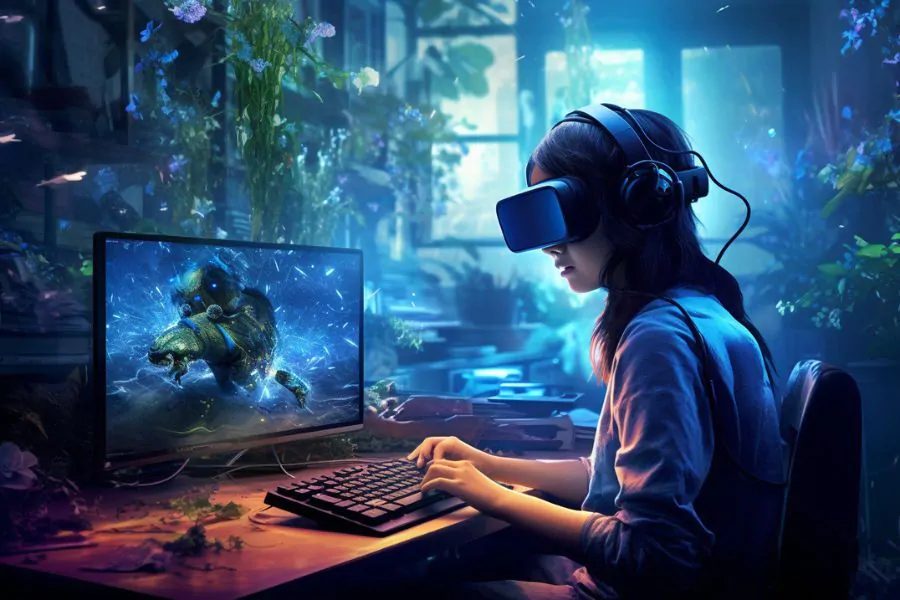One of the most intriguing aspects of modern video games is the integration of Artificial Intelligence (AI) technology. From non-player characters (NPCs) to procedural content generation, AI plays a crucial role in shaping the gaming experience. This article explores the multifaceted utilization of AI in video games and its impact on gameplay, immersion, and innovation.
Enhanced NPC Behavior
Traditionally, NPCs in video games were limited by scripted actions and predictable patterns. However, advancements in AI have revolutionized NPC behavior, imbuing virtual characters with a sense of autonomy and intelligence. Through techniques such as pathfinding algorithms and decision trees, NPCs can navigate complex environments, interact with players, and adapt to changing circumstances. This dynamic behavior not only enhances the realism of virtual worlds but also fosters emergent gameplay scenarios where every encounter feels unique and unpredictable.
Dynamic Difficulty Adjustment
Artificial Intelligence (AI) algorithms are also instrumental in implementing dynamic difficulty adjustment mechanisms in video games. By analyzing player performance metrics and behavior patterns in real-time, AI can dynamically adjust the game’s difficulty level to ensure an optimal balance between challenge and enjoyment. Whether it’s adjusting enemy AI aggression or tweaking puzzle complexity, dynamic difficulty systems allow games to cater to a diverse range of player skill levels without sacrificing immersion or engagement.
Procedural Content Generation
Another compelling application of Artificial Intelligence (AI) in video games is procedural content generation (PCG). Rather than relying solely on pre-designed assets and levels, developers can leverage AI algorithms to generate vast, procedurally generated worlds filled with unique landscapes, characters, and quests. This not only streamlines the game development process but also enhances replayability by offering players endless variations of content to explore and experience. From open-world adventures to roguelike dungeon crawlers, procedural generation empowers developers to create expansive virtual worlds that feel alive and ever-evolving.
Adaptive Game Design
Artificial Intelligence (AI)-driven analytics and player modeling have also revolutionized the way games are designed and optimized. By collecting and analyzing player data, developers can gain valuable insights into player preferences, behaviors, and engagement patterns. This data-driven approach enables iterative game design where developers can fine-tune gameplay mechanics, balance multiplayer experiences, and tailor content updates to align with player expectations. Ultimately, AI-powered analytics empower developers to create more immersive, engaging, and player-centric gaming experiences.
Challenges and Ethical Considerations
While the integration of Artificial Intelligence (AI) in video games offers tremendous potential for innovation and immersion, it also presents a unique set of challenges and ethical considerations. Concerns regarding AI bias, privacy, and player manipulation underscore the importance of responsible AI development and implementation in the gaming industry. As developers continue to harness the power of AI to enhance gaming experiences, it is imperative to prioritize transparency, fairness, and user consent to ensure that AI-driven technologies serve the best interests of players and communities.

Conclusion
The utilization of Artificial Intelligence (AI) in video games represents a paradigm shift in interactive entertainment, enabling unprecedented levels of immersion, adaptability, and innovation. From lifelike NPC interactions to procedurally generated worlds, AI technology is reshaping the landscape of gaming and redefining the possibilities of virtual experiences. As developers continue to push the boundaries of AI-driven game design, the future of gaming holds limitless potential for creativity, exploration, and player engagement.


